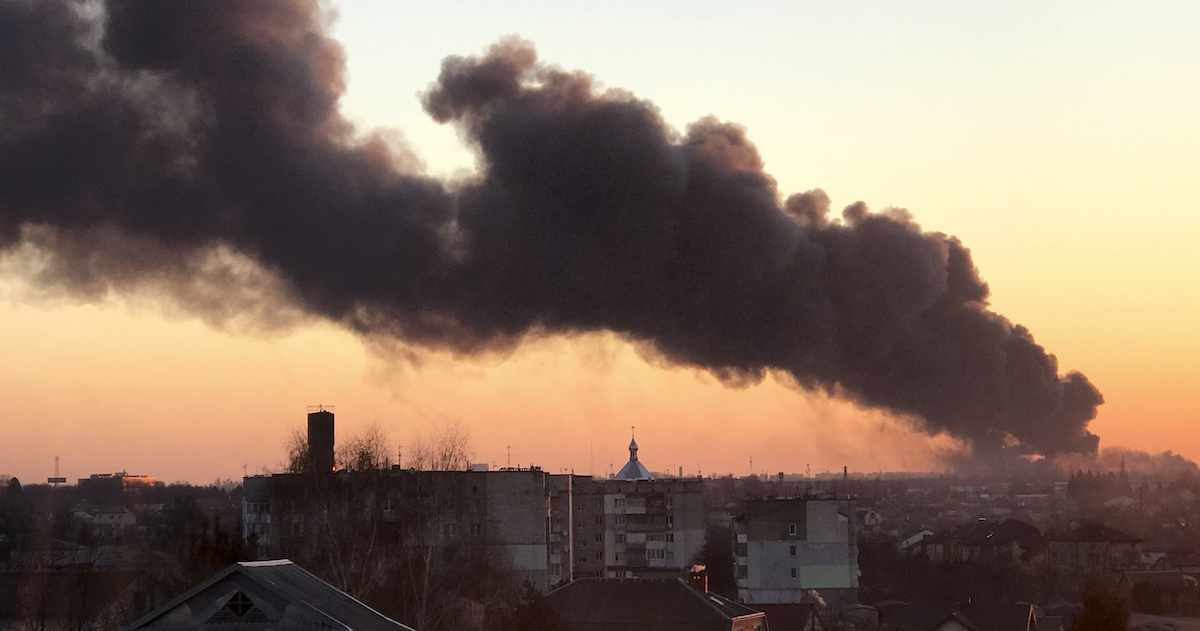Debate on Western Arms in Ukraine's Conflict
Exploring the risks and consequences of allowing Ukraine to use Western missiles against deep Russian targets.
Published September 18, 2024 - 00:09am

Image recovered from ilpost.it
The United States and some allied countries like the United Kingdom and France are considering the possibility of allowing Ukraine to use Western missiles to target military objectives deep within Russian territory. This marks a significant shift from their previous stance, where Western governments hesitated to take such steps due to fears of potential Russian retaliation. Speaking to journalists, U.S. President Joe Biden mentioned that his administration is currently working on granting Ukraine this capability. Meanwhile, British media have reported that Prime Minister Keir Starmer's government has privately decided to allow Ukraine to use its Storm Shadow missiles in Russia, pending final U.S. approval.
Such a decision could have significant, if not decisive, consequences for the conflict. American media outlets anticipate that the U.S. will make two key decisions soon: the first is to permit Ukraine to strike deep into Russian territory, and the second is to allow these attacks using missile systems provided by the United States. It is important to note that there will be no authorization to target civilian objectives, a stance that Ukraine has consistently adhered to.
Since May this year, Ukraine has been allowed to use Western weapons to strike Russian targets near their border to prevent Russian artillery from positioning itself just behind the frontier and launching attacks on Ukrainian cities. This authorization came after weeks of hesitation and concerns from Western countries.
This pattern of Ukraine requesting military supplies and permissions, and the West hesitating before finally granting them, has been a constant throughout the conflict. From the beginning of the Russian invasion, the United States first hesitated to provide medium-range HIMARS missiles, then tanks like the Abrams and Germany's Leopard models, followed by long-range ATACMS missiles. Each new concession was met with threats of severe consequences from Russia, which have yet to materialize. Recently, Russian President Vladimir Putin warned that if the West allows Ukraine to strike deep within Russian territory, it would mean the West is at war with Russia and that appropriate decisions would be taken.
Moreover, even after Ukraine occupied part of the Russian territory in the Kursk region in early August using Western weapons, no major Russian retaliation has been observed. Ukraine believes that the ability to hit deep Russian military targets would mainly help it defend its territory more effectively. Russia continues devastating bombardments on Ukrainian cities, often targeting civilian infrastructure. According to Ukrainians, these attacks are facilitated by the lack of a strong response from their side. Currently, Ukraine conducts regular drone attacks on Russia using non-Western drones, achieving limited effects.
Allowing Ukraine to use Western long-range missiles like the American ATACMS and British Storm Shadow missiles would, according to the Ukrainian military, reduce Russia's destructive capabilities. However, experts express skepticism about the broader consequences of lifting restrictions on using Western weapons in Russia. Russian military infrastructure has already been moved beyond the maximum 300-kilometer range of the ATACMS missiles in anticipation of their use. Russia is increasingly using glide bombs to hit Ukrainian targets from distances greater than 300 kilometers, rendering the ATACMS ineffective.
The American Institute for the Study of War believes that attacking Russian territory with ATACMS would still be beneficial even after relocating some military structures. The institute has identified hundreds of potential Russian military targets that would be difficult to move. However, primarily American experts caution that the missiles available to Ukraine may not be sufficient for an effective bombing campaign, and the West's stockpiles may not be large enough to supply all the necessary missiles.
Recent developments in the Donbass region have forced Ukraine to reconsider its military strategy. Ukraine's former Commander-in-Chief Valery Zaluzhny was against a planned operation in Russia's Kursk region due to the lack of a clear action plan post-border breach, a concern he expressed to Ukrainian President Volodymyr Zelensky without receiving a satisfactory response.
Russian forces have achieved tactical successes in offensive operations in the Donbass, causing severe losses in Ukraine's army and prompting Ukrainian Commander-in-Chief Alexander Syrsky to redeploy some units from the Kursk region to the special military operation zone. In the wake of these redeployments, Kiev seeks permission from the West to target deep Russian military objectives and assistance in intercepting missiles targeting Ukraine.
Germany has expressed caution regarding this issue. A retired German General, Harald Kujat, warned that permitting Ukraine to employ long-range weapons against Russian territories could escalate the conflict beyond current borders. He emphasized that crossing these extreme boundaries might reach a point of no return in the conflict's escalation. German Chancellor Olaf Scholz also stated his intention to prevent Ukraine from using German long-range weapons for attacks deep into Russian territory.
Alongside military considerations, prisoner exchanges between Russia and Ukraine continue amid ongoing hostilities. Recently, both countries announced a new exchange of 206 soldiers. This exchange included Russian soldiers captured during Ukraine's incursion into the Kursk region and Ukrainian prisoners of war held by Russia. The successful negotiation of these exchanges often involves mediation by countries like the United Arab Emirates.
As the conflict persists, the pressure mounts on Western allies to support Ukraine's request for long-range missiles. However, Western leaders remain wary of provoking direct confrontation with Russia, which could escalate an already devastating conflict.








